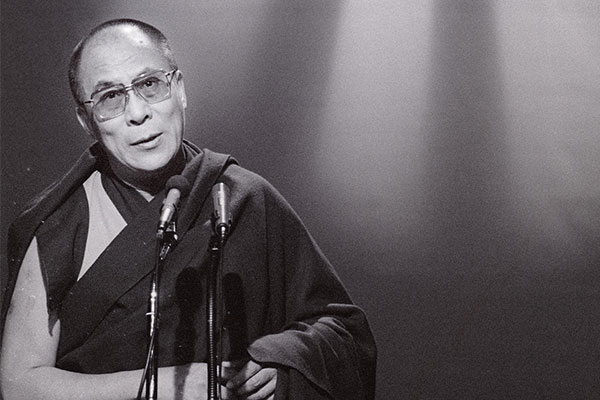
China Demands Control over Dalai Lama’s Reincarnation
- By Krista R. Burdine --
- 18 Mar 2015 --

As tensions between China and Tibet rise, China demands control over the reincarnation of the Dalai Lama who may simply choose not to reincarnate
Atheist communist China is up in arms over suggestions the 14th Dalai Lama might choose to die without reincarnating. Last week officials began to overtly threaten that he must choose a successor for them to validate.
For a decade, the exiled Buddhist leader has suggested he might reincarnate as a woman, or outside the boundaries of Tibet–away from Chinese communist control. As he approaches his eightieth birthday, he hinted to a German newspaper that perhaps he will not reincarnate at all–a move that would bring to an end centuries of tradition and leadership for nearly 6 million Tibetan Buddhists.
China’s Atheist Government’s Authority Over Religion
One could easily wonder what business the Chinese government has in the affairs of one of the world’s largest religions. Since 2007, the Chinese Religious Affairs Bureau has declared itself the final validation of any reincarnations of Buddhist leadership. This follows a longstanding relationship between the religion and the state, although in antiquity the government was Buddhist in essence compared to the Communist regime that has been in power since the 1950’s. Communism officially fosters atheism since the head of the government is meant to stand in as the highest authority.
The Dalai Lama’s Fears for a China Controlled Tibet
The Dalai Lama explains his reasoning to be based on fear that the 15th Dalai Lama might be weak and bring disgrace upon the position. He also likely speaks from frustration that Tibet is not free, and he is forced to live in exile. To add weight to the futility of his quest to find a successor, he knows that if the government does not approve his choice another one will be selected instead. This already happened with the selection of the Panchen Lama, the second highest position in Buddhism. The government selected the replacement after the previous Panchen Lama died in 1989. When the Dalai Lama made an independent choice the following year, that child immediately disappeared and possibly remains under house arrest.
The Dalai Lama has reserved the final decision for whether he will reincarnate until he is 90, ten years from now. If he chooses to do so, chances are good that Beijing will appoint its own choice instead and the Tibetan Buddhist community will be divided over which spiritual leader to follow. If he chooses not to reincarnate, he simply ensures that Beijing will make the choice against his will and the Tibetan people will be united with a clearer decision to follow a puppet leader or not have a leader at all.
Tibetan author Tsering Woeser believes a decision not to reincarnate would not be beneficial for Buddhists, and that therefore the Dalai Lama will not follow through with it. He frames the spiritual leader’s statements as a way to help Tibetans focus on unity, and contends that ultimately he will appoint a successor.
China Has its Own Plans
Last week, Chinese Communist Party Official Zhu Weiqun claimed that the Dalai Lama has no authority over whether or not he was reincarnated. On the contrary, the Chinese government was the power that would ultimately decide on direction of the religious figurehead’s next life. “Decision-making power over the reincarnation of the Dalai Lama, and over the end or survival of this lineage, resides in the central government of China,” Zhu Weiqun claimed. The former United Front Department of the Communist Party deputy head added, “Where in the world is there anyone else who takes such frivolous attitude toward his own succession?”



















